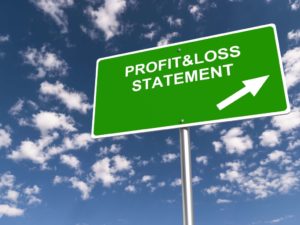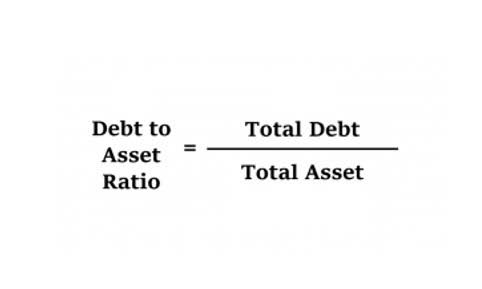
Whether you’ve started a small business or are self-employed, Certified Bookkeeper bring your work to life with our helpful advice, tips and strategies. Let us walk you through everything you need to know about the basics of bookkeeping. At Future Proof Accounting, we’re not just your bookkeepers – we’re your partners in prosperity. With Taxfyle, your firm can access licensed CPAs and EAs who can prepare and review tax returns for your clients. Get $30 off your tax filing job today and access an affordable, licensed Tax Professional. With a more secure, easy-to-use platform and an average Pro experience of 12 years, there’s no beating Taxfyle.
Day-to-Day Work of a Bookkeeper

As a result, bookkeepers no longer spend most of their days manually logging new income and expenses. The main difference between bookkeeping and accounting is the scope of work. Bookkeeping focuses on recording financial transactions and ensuring the accuracy of data entry. On the other hand, accounting takes this data and provides analysis, interpretation, and strategic planning based on financial information. Bookkeeping ensures that a small business has accurate and up-to-date financial records, which are essential for compliance with tax laws and regulations.

Who Needs Bookkeeping Services?

To set up a budget, gather your financial data, such as income statements, balance sheets, and cash CARES Act flow statements. This will give you a clear picture of your business’s past financial performance and help you make realistic projections for the future. As a business owner, bookkeeping might not rank high on your list of priorities. However, maintaining accurate financial records is key to your business’s success. Tools like QuickBooks, Xero, and Sage streamline processes and reduce errors with features such as automated reconciliation and real-time reporting.
How Intuit helps tax and bookkeeping pros do their best work
Their expertise in accounting and attention to detail help businesses make informed decisions and maintain financial consistency. Bookkeeping is the management process of documenting a company’s financial transactions. This is done to keep track of the money that comes into the business, what money leaves the company, what taxes are required, and what tax deductions may be claimed. Bookkeeping focuses on meticulously recording daily financial transactions. Accountants, on the other hand, analyze that data to help you make informed financial decisions.
- Accountants don’t just present the data; they interpret it, identifying trends, potential problems, and growth opportunities.
- With our easy-to-use software and professional expertise, we can help truckers stay on top of their financials, ensuring compliance and maximizing profits.
- Accurate bookkeeping ensures that invoices are sent promptly, clients are billed according to milestones, and contractors and vendors are paid on time.
- Bookkeepers regularly meet with managers to review financial trends, recurring expenses, and forecasted income.
- But it’s up to the accountant to analyze the company’s financial data and provide the business owners and executives with advice on improving key performance metrics.
- In larger companies, their roles tend to be more specialized, focusing on areas like accounts payable or accounts receivable.

Successful accountants need to have the same knowledge and attention to detail as bookkeepers, along with business acumen, strategic vision, and management skills. Look for candidates who have the appropriate qualifications and experience. For accountants, this might include a degree in accounting and relevant certifications (CPA or CMA). For bookkeepers, experience and certifications can indicate their level of expertise. These are expenses that help to reduce your taxable income, and having proper records of them will save you a good amount in taxes. Deductible expenses include; business trips, meals, equipment purchased, and office space.
This method records both invoices and bills even if they haven’t been paid yet. This is a highly recommended method because it tells the company’s financial status based on known incoming and outgoing funds. Because the funds are accounted for in the bookkeeping, you use the data to determine growth. Generally speaking, bookkeepers help collect and organize data and may have certain certifications to do so for your business. On the other hand, accountants are generally equipped with an accounting degree and may even be state-certified CPAs. You can expect most bookkeepers to maintain the general ledger and accounts while the accountant is there to create and interpret more complex financial statements.
- Their expertise in accounting and attention to detail help businesses make informed decisions and maintain financial consistency.
- They cannot perform independent audits, reviews, or compilations of financial statements and usually don’t prepare income tax returns.
- Each app offers features tailored to the needs of truckers, such as expense tracking and tax compliance.
- They can also get important insights into their business’s finances.
- Accounts payable relates to money that you owe supliers and creditors.
Bookkeeping is the ongoing recording and organization of the daily financial transactions of a business and is part of a business’s overall accounting processes. Whether it’s updating your books or keeping in contact with your tax adviser, maintain your business’s financial records and expenses throughout the year. That way, you can be well prepared when it’s time to file taxes with the IRS. Without any hiccups or last-minute scrambles, you’ll be able to enter tax season confidently. The double-entry system of bookkeeping is common in accounting software programs like QuickBooks. With this method, bookkeepers record transactions under expense or income.
One common misunderstanding is that bookkeeping and accounting are interchangeable. Bookkeepers focus on the accurate recording of transactions, while accountants analyze and interpret that data. Accounting https://www.bookstime.com/services encompasses a broader range of activities than bookkeeping. While bookkeeping focuses on recording transactions, accounting involves analyzing, interpreting, and reporting financial data.
